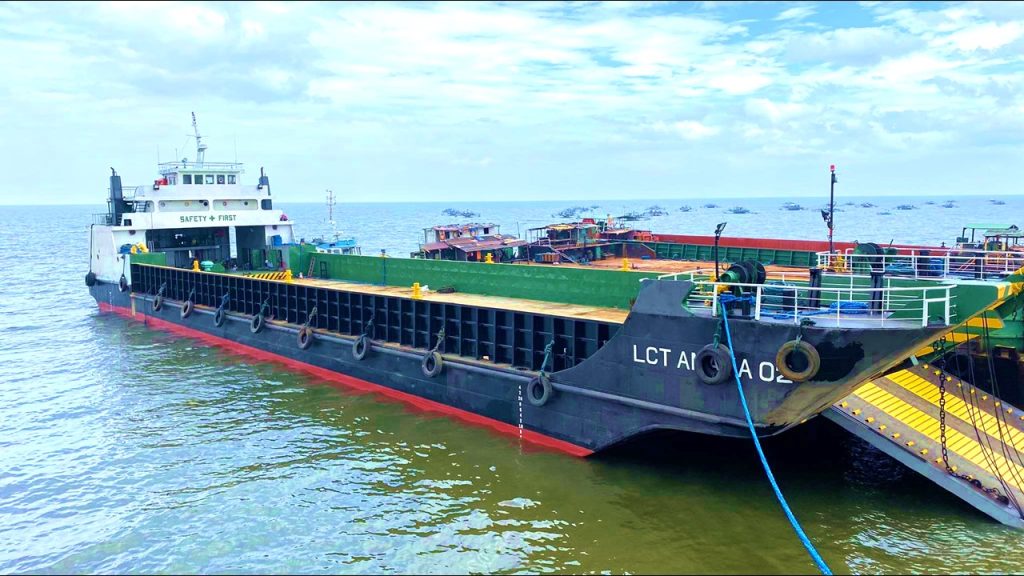In the vast world of maritime transportation, time voyage and time charter in the Philippines stand as two fundamental options that shape the ship chartering business. These terms may sound unfamiliar to some, but they hold significant sway in the maritime industry. Whether you are a seasoned professional or a curious enthusiast, understanding the differences and advantages of time charter in the Philippines is crucial for comprehending the intricacies of this dynamic field. So, let us embark on a journey through these two key concepts and uncover their unique roles in shaping global trade routes and facilitating efficient shipping operations.
Click here to view our ship chartering and shipping services in the Philippines
Understanding Ship Chartering in the Philippine Maritime Industry
Ship chartering is a crucial aspect of the maritime industry in the Philippines, where many companies rely on this service to transport goods efficiently. Understanding the different types of charters available can help businesses make informed decisions and optimize their shipping operations. A voyage charter, for instance, involves hiring a vessel for a specific voyage or journey. This type of charter is beneficial when there is a fixed cargo quantity and destination.
On the other hand, time charter in the Philippines offers more flexibility as it allows companies to hire a vessel for an extended period rather than just one trip. With time charters, businesses have greater control over scheduling and can tailor the ship’s usage according to their needs. Whether it’s short-term or long-term requirements, time charters offer versatility that can be advantageous in navigating the dynamic demands of international trade.
Both voyage and a time charter in the Philippines have their merits depending on various factors such as cargo volume, destination flexibility, and duration required. By understanding these differences in ship chartering options in the Philippine maritime industry, businesses can make strategic choices that align with their operational goals while efficiently meeting customer demands. Ultimately, being well-versed in these concepts will empower organizations to streamline their shipping processes and ensure smooth sailing in an increasingly competitive market.
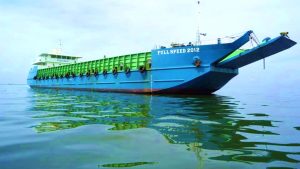
Definition of Voyage Charter in the Philippines
Voyage charter is a commonly used term in the maritime industry, particularly in the Philippines. It refers to a contract where the shipowner agrees to carry goods or passengers from one port to another for a specific voyage. Unlike time charter in the Philippines, which focuses on the use of the vessel for a fixed period, voyage charter is all about transporting cargo or people from point A to point B.
In a voyage charter agreement, the shipowner takes responsibility for providing and maintaining the vessel for the duration of the journey. The charterer, on the other hand, pays a stipulated amount known as freight as compensation for using and owning space on the ship. This arrangement gives both parties flexibility and allows them to negotiate terms based on factors such as cargo type, route, and timeframe.
For businesses involved in international trade or those requiring occasional transportation services, voyage charters offer significant advantages in terms of cost-effectiveness compared to long-term commitments under a time charter in the Philippines. Additionally, this type of charter allows shippers or consignees more control over their shipments since they have direct access to cargo space on specific voyages. However, it also comes with risks, such as fluctuating market conditions that may affect freight rates and availability of suitable vessels at desired times.
Understanding journey contracts like voyage charters is crucial when navigating through complex maritime laws and regulations associated with shipping goods and passengers within Philippine waters.
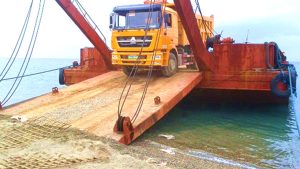
Definition of Time Charter in the Philippines
One of the key concepts in maritime law is the time charter in the Philippines. In essence, a time charter Manila, Cebu, Navotas, Batangas, Davao, and Subic Bay is an agreement between the owner of a vessel, known as the charterer, and a party interested in using the vessel for a specified period of time. Unlike a voyage charter, where the charterer rents the vessel to transport a specific cargo or passengers from one point to another, a time charter grants the charterer more flexibility by allowing them to use the vessel for multiple voyages within a set timeframe.
The advantage of entering into a time charter in the Philippines is that it provides greater control over vessel operations and scheduling. For instance, if you are engaged in regular trade routes or transporting goods on an ongoing basis, a time charter in the Philippines allows you to reserve access to your chosen vessel for an extended period. This also means that you can plan accordingly and have more certainty in terms of costs and logistics.
Additionally, another notable aspect of a time charter in the Philippines is that they often outline specific terms regarding payment structures. Typically, there will be periodic hire payments made by the charterer during their agreed-upon timeframe of use. This ensures that both parties have clarity on financial obligations and can budget effectively based on their respective roles and responsibilities.
Overall, while both a voyage charter and a time charter in the Philippines serve different purposes in maritime trade, understanding how they operate can provide valuable insights when determining which option best suits your needs as either an owner or user of vessels within Philippine waters.
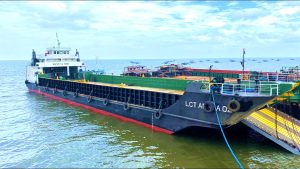
Key Differences Between Voyage Charter and Time Charter in the Philippines
One key difference between a voyage charter and a time charter in the Philippines lies in the way the payment is structured. In a voyage charter, the payment is usually calculated based on the specific distance traveled or volume of cargo transported. This means that if there are any delays or deviations from the agreed route, it could impact the overall cost. On the other hand, time charter in the Philippines payments are fixed for a predetermined period, regardless of how much cargo is actually transported during that time. This provides more stability and predictability for both parties involved.
Another significant distinction between these two types of charters is the level of control and responsibility given to each party. In a voyage charter, the shipowner retains control over various aspects, such as hiring crew, maintaining equipment, and choosing routes. The charterer typically has limited involvement beyond arranging for the loading and unloading of cargo at specified ports. In contrast, a time charter in the Philippines gives more control to the charterer, who becomes responsible for operating and managing all aspects of the vessel during the contracted period. This includes crewing, repairs, fuel costs, insurance, and any potential liabilities that may arise.
These differences highlight that while both a voyage charter and a time charter in the Philippines serve their distinct purposes in shipping contracts, they provide varying levels of flexibility and commitment to each party involved.
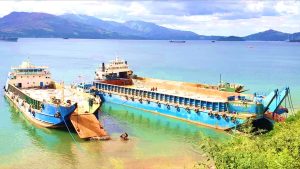
Advantages of a Voyage Charter in the Philippines
One of the major advantages of a voyage charter in the Philippines is the flexibility it offers. With a voyage charter, the ship is hired for a specific journey with a predetermined route and itinerary. This allows the charterer to have complete control over when and where they want to transport their goods. They don’t have to worry about committing to long-term contracts or fixed periods of time like they would with a time charter in the Philippines.
Another advantage of a voyage charter is cost efficiency. Unlike with a time charter in the Philippines, where the charterer pays for a set period regardless of whether or not the vessel is fully utilized, with a voyage charter, you only pay for what you use. This means that if there are any delays or changes in plans that result in less utilization of the vessel, you won’t be paying for idle time. It also allows for greater control over costs as you can negotiate pricing based on current market rates.
Furthermore, choosing a voyage charter gives you access to niche markets and specialized vessels that may not be available through other types of charters. This can be particularly advantageous if your cargo has unique requirements or needs specialized handling equipment. By opting for a voyage charter, you can find vessels specifically tailored to meet your needs, ensuring safe transportation and delivery without compromising on quality.
In conclusion, selecting a voyage charter in the Philippines provides flexibility, cost efficiency, and access to specialized vessels that make it an attractive option for businesses looking to transport their goods efficiently and economically.
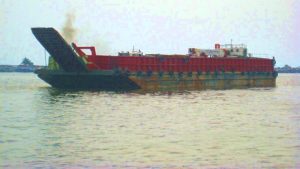
Advantages of a Time Charter in the Philippines
One of the key advantages of a time charter in the Philippines is the flexibility it offers to both the owner and the charterer; unlike a voyage charter, where the vessel is hired for a specific journey or series of journeys, a time charter allows for longer-term agreements. This means that both parties have more freedom to plan their operations without being constrained by rigid voyage schedules.
Another advantage is that a time charter in the Philippines often offers cost savings in terms of operational expenses. With a fixed rate agreed upon for a set period, owners can better predict their cash flow and budget accordingly. Charterers can also benefit from cost savings as they are only responsible for certain operating expenses, such as bunkers and port charges, while the owner retains responsibility for vessel maintenance and crew wages.
Furthermore, a time charter in the Philippines provides stability in uncertain market conditions. In an industry where freight rates fluctuate based on supply and demand dynamics, having a long-term contract can provide some level of security to both owner and charterer. This stability allows companies to make long-term business plans with confidence, knowing that they have consistent access to vessels at negotiated rates.
Choosing a time charter in the Philippines over a voyage charter in the Philippines provides greater flexibility, cost savings, and stability for both owners and charterers. Whether it’s planning operations more efficiently or ensuring predictable cash flow, these advantages make time charters an attractive option in today’s dynamic shipping industry.
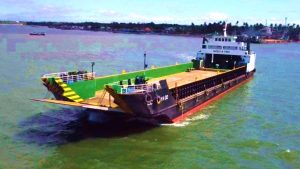
Voyage Charter vs. Time Charter in the Philippines: Considerations When Choosing Between the Two Options
When it comes to chartering a vessel in the Philippines, there are two main options available: voyage charter and time charter in the Philippines. While both can provide solutions for businesses looking to transport goods or passengers, there are key considerations that should be taken into account when choosing between the two.
One important factor to consider is the flexibility of each option. A voyage charter allows for greater flexibility as it is based on a specific journey from one port to another. This can be advantageous if you have a one-time transportation requirement or if you need to transport goods to multiple destinations within a set timeframe. On the other hand, a time charter in the Philippines provides greater flexibility in terms of duration, allowing you to hire a vessel for an extended period of time and use it as needed.
Cost is another consideration that should not be overlooked. In general, voyage charters tend to be more cost-effective for short-term transportation needs since they are usually priced based on the distance traveled and cargo quantity. A time charter in the Philippines, on the other hand, often involves fixed monthly rates, which can make them more suitable for businesses with long-term transportation requirements or those looking for predictable costs over an extended period.
Ultimately, whether you choose a voyage charter or time charter in the Philippines will depend on your specific needs and priorities. By considering factors such as flexibility and cost, you can make an informed decision that best fits your business’s requirements when it comes to transporting goods or passengers in the Philippines.
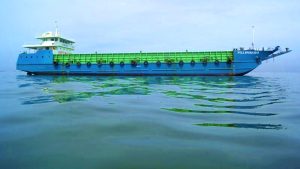
Industry Applications: Common Uses of Voyage Charters in Philippine Business
In the Philippine business world, voyage charters are widely used for various industry applications. One common use is in the shipping and logistics industry. Companies that need to transport goods across long distances often opt for voyage charters as they allow them to have full control over the vessel and schedule. This flexibility enables businesses to adapt to changing market demands and ensures timely delivery of products.
Another industry that heavily relies on voyage charters is the oil and gas sector in the Philippines. With offshore drilling sites located in remote areas around the world, companies turn to voyage charters to transport equipment, supplies, and personnel to these locations. The ability to charter a vessel specifically tailored for their needs allows oil and gas companies to efficiently carry out their operations without being constrained by fixed charter terms.
Moreover, voyage charters in the Philippines are also utilized in the mining industry. Companies involved in extracting minerals or precious metals often require specialized vessels with specific cargo handling capabilities. By opting for a voyage charter, mining companies can access vessels equipped with loading and unloading facilities suitable for their unique requirements.
Voyage charters in the Philippines find extensive applications across various industries, such as shipping and logistics, oil and gas, and mining, among others. The versatility of this charter type enables businesses to adapt swiftly while maintaining control over every aspect of transportation operations. Whether it’s delivering goods across continents or carrying out complex offshore projects, using a voyage charter offers numerous benefits for businesses worldwide.
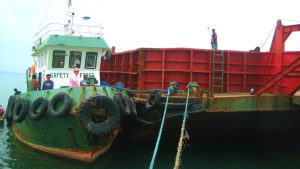
Industry Applications: Common Uses of Time Charters in Philippine Business
One of the common uses of time charters in Philippine business is in the shipping industry. Many companies rely on time charters to ensure a steady flow of goods and materials between different locations in the country. A time charter in Manila, Zamboanga, Mindoro, Cagayan de Oro, Pampanga, and Olongapo allows businesses to lease a vessel for a specific period, which gives them more flexibility and control over their shipping operations. This is especially useful for companies that have fluctuating demand or need to transport goods to remote islands that regular shipping routes might not service.
Another industry where time charters are commonly used in the Philippines is the offshore oil and gas sector. Due to its rich natural resources, the country has seen significant investments in offshore drilling activities. Time charters are often employed by exploration and production companies to secure vessels that can provide support services such as transportation of personnel, equipment, and supplies to offshore drilling platforms. These long-term contracts give companies the assurance they need to carry out their operations efficiently while maintaining safety standards.
Overall, these common applications of a time charter in the Philippines highlight how this contractual arrangement plays a crucial role in ensuring smooth operation across different industries in the Philippines. By providing flexibility, reliability, and cost-effectiveness, time charters enable businesses to meet their specific needs while navigating various challenges posed by distance, remote locations, or fluctuating demand patterns.
Are You Looking for a Voyage Charter and Time Charter Company in the Philippines?
When it comes to voyage charter and time charter services in the Philippines, Full Speed Chartering and Shipping Agency Inc. (FSCSAI) stands out as a trusted company in the Philippines. With their extensive experience and commitment to excellence, they provide high-quality services that meet the unique needs of each client.
- Email us: info@fullspeedchartering.com
- Mobile, Viber, WhatsApp: +63 939 3753224
- Facebook Messenger: Click here
- Click here to inquire
What sets FSCSAI apart is its ability to understand the dynamic nature of the shipping industry. They take into account factors such as cargo requirements, vessel availability, and market conditions to ensure seamless operations for their clients. This personalized approach allows them to offer competitive rates and flexible charter options tailored specifically to each customer’s requirements.
Additionally, FSCSAI boasts a strong network of reputable ship owners and operators in the region. This enables them to offer a wide range of vessels for both voyage charters and time charters, including bulk carriers, tankers, container ships, and more. Their knowledge of local regulations ensures compliance at all times, giving clients peace of mind during their operations in Philippine waters.
So if you’re looking for a trustworthy voyage charter or time charter company in the Philippines, look no further than Full Speed Chartering and Shipping Agency Inc. With their expertise and dedication to client satisfaction, they are well-equipped to handle your shipping needs efficiently and effectively. Contact them today for an outstanding experience in maritime transportation services.
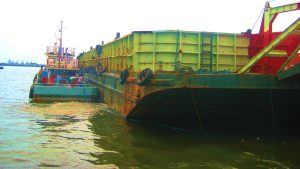
The Future of Ship Voyage Charter and Time Charter in the Philippines
The future of ship voyage charter and time charter in the Philippines holds immense potential for growth and innovation. As one of the fastest-growing economies in Southeast Asia, the country is witnessing a surge in maritime trade, leading to a greater demand for chartering services. Ship voyage charters, offering flexibility and customized routes based on specific cargo needs, are predicted to gain prominence. With increasing globalization and diversification of trade routes, shipowners will need to adapt to changing market dynamics and offer innovative solutions that can optimize their vessels’ utilization.
On the other hand, a time charter in the Philippines may also experience a significant transformation in the coming years. As technology continues to advance, shipowners are looking towards digitalization and automation to enhance efficiency and reduce costs. Real-time data analytics can enable better decision-making regarding vessel performance optimization, fuel consumption management, maintenance schedules, and crew rotation. Additionally, green shipping initiatives are gaining momentum globally as countries strive to reduce carbon emissions from maritime activities. This shift towards sustainability could influence both voyage charters and time charters by encouraging eco-friendly practices such as slow steaming or utilizing alternative fuels.
The future of ship voyage charter and time charter in the Philippines presents exciting opportunities for growth and innovation. Embracing technological advancements while adhering to sustainability objectives will be key factors shaping this sector’s trajectory.
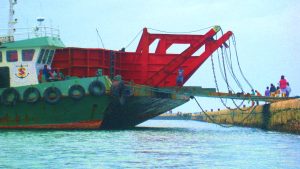
Conclusion: Voyage Charter vs. Time Charter in the Philippines
In conclusion, when it comes to choosing between a voyage charter and a time charter in the Philippines, it is important to evaluate the specific needs and priorities of your business carefully. While both options have their own advantages and disadvantages, understanding these key differences can greatly impact the success of your maritime operations.
One fresh insight to consider is that while a voyage charter may offer more flexibility and control over individual voyages, it also carries more financial risk as owners are solely responsible for expenses such as port fees and fuel costs. On the other hand, a time charter in the Philippines provides greater stability as owners receive fixed payments regardless of market fluctuations. This allows for better budgeting and planning but can limit operational flexibility.
Another perspective worth exploring is that a time charter in the Philippines may be more suitable for shippers who have regular shipping requirements or those who prefer long-term partnerships with shipowners. In contrast, a voyage charter may be preferred by shippers looking for one-off transport arrangements or those who desire greater freedom in selecting vessels that best match their cargo specifications.
Ultimately, making an informed decision between a voyage charter and a time charter in the Philippines requires considering cost implications, operational flexibility, contract durations, cargo volumes, market conditions, trade patterns, and other unique factors relevant to your business. By doing so thoughtfully and employing sound strategic planning in accordance with industry trends in the Philippines’ shipping landscape, you can help position your company competitively within the maritime sector.

